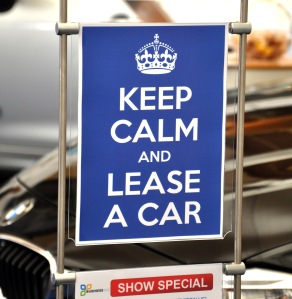When you’re in the market for a new car, there are a lot of decisions to make. Should you buy with cash? Buy with finance? Lease a car for a fixed period rather than buying one?
It’s worth considering whether it might actually be cheaper to lease your vehicle, even though that means you won’t own it outright and will have to hand it back when you’re finished.
One thing to get clear from the start is that this is not a general rule. Some drivers can save money by leasing their vehicle instead of buying it, while for others it will be far cheaper to buy it with finance.
Admittedly it does seem pretty counter-intuitive that it can be cheaper to lease a vehicle. After all, if you buy a car then you have a car. You can continue to drive it or sell it, whereas at the end of a lease you have nothing.
But you need to factor depreciation into your sums. If the gap between the price of your new vehicle and its value after three years is more than it would cost to hire a car during that time, then you’ve potentially lost out.
A lot of factors influence whether it’s cheaper to buy or lease a car, such as the number of miles you drive and how well the car retains its value. Many UK drivers are now considering leasing as an alternative to buying a new car with a bank loan or dealer finance from companies such as Sinclair Finance and Leasing.
The consumer watchdog Which? looked at some specific car models and found that, while the VW Scirocco is worth 63% of its original price after three years, a new Ford Mondeo is typically worth just 36% of its initial value. Because of that, the survey suggests that most people would be better off buying the VW Scirocco on finance, but leasing a Mondeo.
As a general rule, if a car has a good resale value then you’re better off buying it. After three years you’d own a valuable asset, whereas with a leased car you’d have nothing.
But if the car plummets in value then it’s probably cheaper to lease it, as you won’t be bearing the brunt of the depreciation.
So look at the price of your new car and its predicted resale value after three years. If you’re driving an unusually high or low number of miles then factor that into your sums. You can then work out how much those three years of driving will cost you, and compare that to the price of a lease car. Just don’t forget to factor in the deposit you pay as well as the monthly cost.
There is a sort of middle ground between buying and leasing a car. A personal contract plan (PCP) means you pay a deposit then pay monthly instalments, but you also owe a ‘deferred payment’ at the end of the contract if you want to keep the car. When the contract ends, you have a choice. You can hand the car back to the dealer without making the deferred payment, leaving you with no car but no debt either. Or you can make the payment and keep the car. An option is to sell the car privately to repay the final amount owed – if the car is worth more than the debt then you can pocket the difference.
That gives you some flexibility over what you pay; if the car has kept its value then you can keep it or sell it, but you won’t pay more than you agreed at the start of the deal. If the car is worth less, you can simply hand it back.
Most insurers are happy to provide cover for a leased vehicle, as this really isn’t an unusual way of paying for a motor. But you do need to make sure you have sufficient insurance – fully comprehensive cover rather than just third party, for example. After all, we need to know that our asset is protected.

